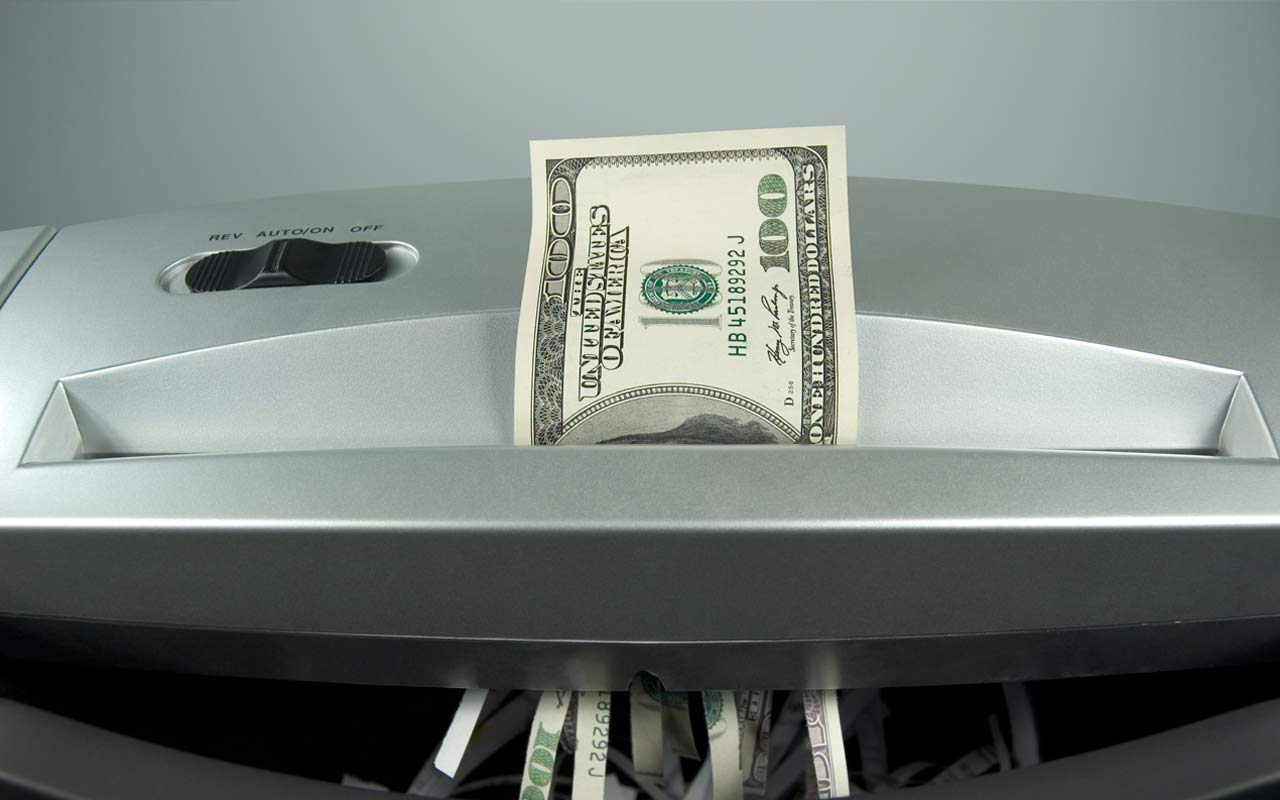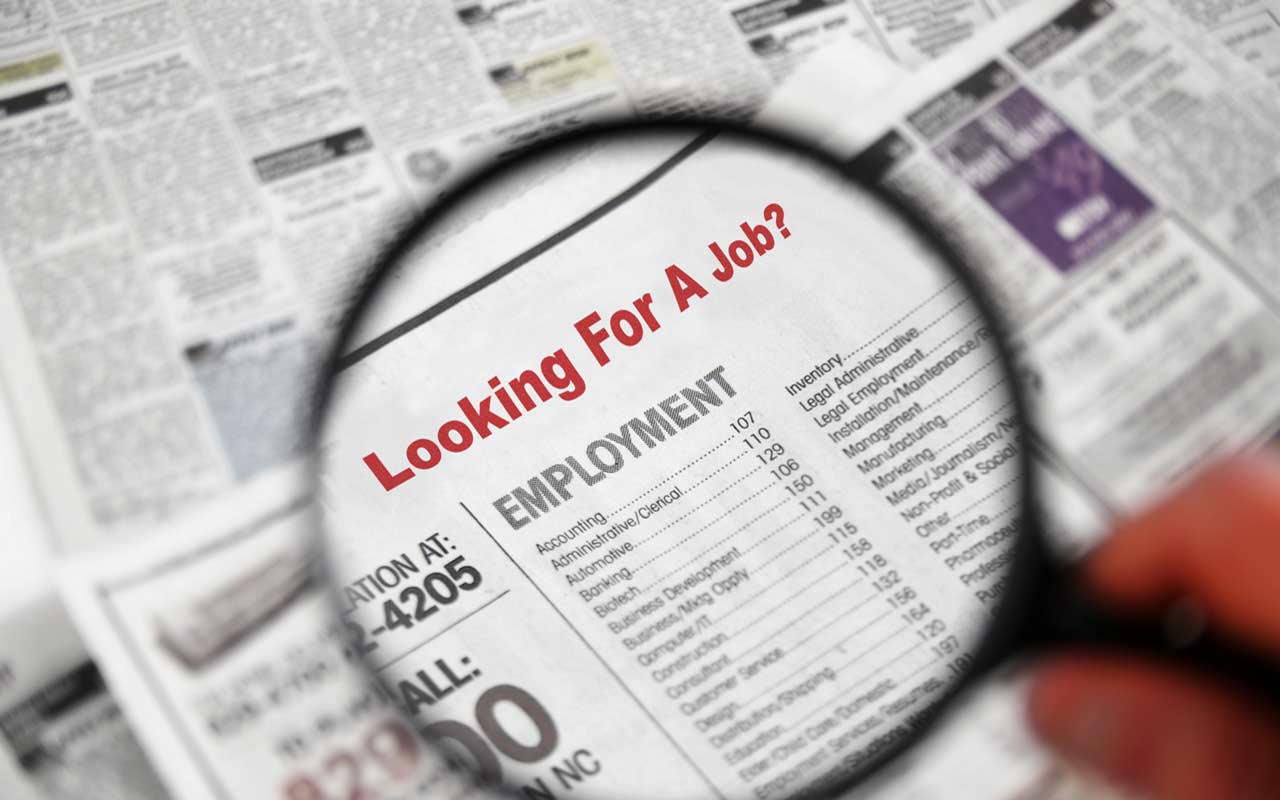12 Reasons You'll Never Be a Millionaire
Wealthy people usually aren't born that way.

Profit and prosper with the best of Kiplinger's advice on investing, taxes, retirement, personal finance and much more. Delivered daily. Enter your email in the box and click Sign Me Up.
You are now subscribed
Your newsletter sign-up was successful
Want to add more newsletters?

Delivered daily
Kiplinger Today
Profit and prosper with the best of Kiplinger's advice on investing, taxes, retirement, personal finance and much more delivered daily. Smart money moves start here.

Sent five days a week
Kiplinger A Step Ahead
Get practical help to make better financial decisions in your everyday life, from spending to savings on top deals.

Delivered daily
Kiplinger Closing Bell
Get today's biggest financial and investing headlines delivered to your inbox every day the U.S. stock market is open.

Sent twice a week
Kiplinger Adviser Intel
Financial pros across the country share best practices and fresh tactics to preserve and grow your wealth.

Delivered weekly
Kiplinger Tax Tips
Trim your federal and state tax bills with practical tax-planning and tax-cutting strategies.

Sent twice a week
Kiplinger Retirement Tips
Your twice-a-week guide to planning and enjoying a financially secure and richly rewarding retirement

Sent bimonthly.
Kiplinger Adviser Angle
Insights for advisers, wealth managers and other financial professionals.

Sent twice a week
Kiplinger Investing Weekly
Your twice-a-week roundup of promising stocks, funds, companies and industries you should consider, ones you should avoid, and why.

Sent weekly for six weeks
Kiplinger Invest for Retirement
Your step-by-step six-part series on how to invest for retirement, from devising a successful strategy to exactly which investments to choose.
Wealthy people usually aren't born that way. Most spend their lives amassing their fortunes by working hard, spending little, saving a lot and investing wisely. It may sound like a simple strategy, but the fact that the vast majority of Americans fall short of millionaire status proves that it's easier said than done.
Then again, 11.8 million households in the U.S. boast a net worth of at least $1 million, excluding the value of primary residences, according to market research and consulting firm Spectrem Group, and their ranks are growing. So it's totally possible.
Read on to learn what you might be doing to keep yourself out of the millionaire's club. More importantly, find out how you can change your ways and build your own seven-figure nest egg.

You Chose the Wrong Profession
Of course, you can become very successful in any job, as long as you work hard and start saving early. But a higher income can certainly make it easier to save more, faster. According to the Bureau of Labor Statistics, many wealthy people today work in technology, engineering and medicine—fields that are well represented in our list of the best jobs for the future. With enough time and the right saving approach, you can build a fortune even with a small salary. According to a U.S. Trust “Insights on Wealth and Worth” survey of high-net-worth investors, 55% credit their choice of careers with helping to reach their goals.
What you can do about it
If you're still in school, majoring in a promising field can put you on the path to a lucrative career and help make you a millionaire. But remember: You'll have an easier time working hard for the rest of your life if you have a legitimate interest in your chosen profession. If you're past your college days, you can still learn some skills to advance your career (more on that later). Also consider supplementing your income. Here are 38 proven ways to earn extra cash.

You Stopped Investing in Yourself
Your education doesn't end once you're done with school. In a world that’s always changing, you need to continuously hone your abilities. Taking the time to keep your skill set and knowledge base up to date makes you more valuable to your colleagues, clients, current employer and future employers. As Benjamin Franklin wisely said, “An investment in knowledge always pays the best interest.”
What you can do about it
Figure out what you want to learn and how it can advance your career. If you think picking up a foreign language could help you in your job, try teaching yourself with programs such as Rosetta Stone, the Great Courses or Duolingo. Would beefed-up technical skills give your career a boost? Try learning to code or do some basic computer programming online through Codecademy, Coursera or MIT's Open CourseWare. And don't forget about simply learning on the job by seeking out challenging projects and asking questions of your peers and superiors.
You could even go back to school—either full time or in the evenings—though be sure to consider whether an advanced degree is worth the debt. You won’t be alone in the classroom if you do. According to the National Center for Education Statistics, there are 7.4 million college students ages 25 and older in 2019.

You're Too Scared of Stocks
Cash stuffed under your mattress or even deposited in a savings account won't keep up with inflation, much less blossom into $1 million. In order to maximize your gains, you need to invest your money wisely. In many cases, that means putting your money in stocks. Consider the math: A typical yield you can expect from a money market account these days might be 1%. If you put away $10,000 in one and added nothing else, in 10 years you'd have around $11,046 total with interest. But if you invested that $10,000 in stocks and earned a typical 8% annual return, you'd have about $21,589, or nearly double the return.
What you can do about it
There's no denying that the stock market can take you on a bumpy ride, so your fears are understandable. But steeling yourself and diving in is well worth it. Over the long term, stocks have marched upward and proved to be the investment of choice for expanding wealth. Savings earmarked for retirement are particularly well suited for the stock market. With a long time horizon, you have time to recover from market dips. Consider building your portfolio with mutual funds, which can hold hundreds of stocks, rather than buying individual stocks. The stock funds in the Kiplinger 25, a list of our favorite low-fee mutual funds, are good options to get started.

You're Afraid of Taking Risks
It’s easy to become content with staying in your lane financially—even if your financial lane is paved with low-risk-but-low-yielding savings accounts and CDs that will never make you rich. A healthy respect for risk is good, when it comes to preserving your wealth, but a total aversion to risk can hinder your ability to ever build wealth.
But to label the wealthy as indiscriminate risk-takers who gamble their savings on pork bellies and bitcoin would be inaccurate. In reality, according to a U.S. Trust survey, 4% of high-net-worth investors describe their risk profile as very conservative, 14% as conservative and a telling 43% as moderate. On the other end of the spectrum, 33% describe their risk profile as aggressive, and just 7% as very aggressive.
What you can do about it
Much comes down to taking well-informed risks. “Millionaires overcome fear with knowledge,” writes Keith Cameron Smith in his book, “The Top 10 Distinctions Between Millionaires and the Middle Class.” Nearly nine out of 10 wealthy individuals have a financial adviser to help evaluate and hedge risk, U.S. Trust found, not only with investment strategies but with tax planning, estate planning and budgeting.
If a high-priced, full-service financial adviser who wants a 1% to 2% cut of your assets doesn’t fit your budget, consider affordable alternatives. You can search directories such as the Garrett Planning Network or the National Association of Personal Financial Advisors for advisers who charge by the hour. Or, consider the aid of online robo advisers such as Betterment or SigFig, which for a small fee offer help with basic portfolio management and financial planning.

You Don't Save Enough
If you don't save money, you're never going to be rich. It's hard to get around that obvious (but often ignored) principle. Even if you earn seven figures, if you spend it all, you still net zero.
What you can do about it
Begin saving as early as possible. The sooner you start putting your money to work, the less you actually have to save. If you start saving at age 35, you'll need to put away $671 each month in order to reach $1 million by the time you turn 65, assuming you earn an 8% annual return. If you wait until you're 45 years old to start saving, you'll have to save $1,698 a month to hit $1 million in 20 years.
How can you start saving? First, you need a budget (more on budgeting later). Lay out all of your expenses to see where your money is going. Then, you can figure out where you can trim costs and save. Any little bit you can muster is a good start. And whenever you get a bonus or some extra cash—for example, after selling some belongings or getting a generous birthday gift—add it to your savings before you have time to think of ways you can spend it.
QUIZ: Do You Have What It Takes to Be a Millionaire?

You Live Beyond Your Means
Spending more than you earn can put you in a dangerous hole of debt. On the bright side, you won't be in there alone: According to the National Foundation for Credit Counseling, nearly two in five Americans carry credit card debt from month to month. And among those balance-carrying households, the average credit-card debt is $9,333, according to research firm ValuePenguin.
What you can do about it
Again, you need to have a budget to make sure you have more money coming in than going out. With the availability of credit, it's easy to fall into thinking you can afford more than you actually can. But, as Editor Emeritus Knight Kiplinger has pointed out for years, "the biggest barrier to becoming rich is living like you're rich before you are."
Once you are rich, you may still want to live like you're not. According to U.S. Trust, the majority of millionaires don't actually consider themselves "wealthy." If you don't think of yourself as well off, and you maintain the same lifestyle even as your income and savings rate increase, you can put away more for your short- and long-term goals without losing an ounce of comfort.

You Overlook the Value of Nickels and Dimes
No, we're not suggesting that you search for loose change under your sofa cushions. Rather, cutting seemingly insignificant expenses—late-payment penalties on your bills and out-of-network ATM fees on your cash withdrawals—can add up to substantial savings. One in four Americans fail to pay all of their bills on time, according to the National Foundation for Credit Counseling.
What you can do about it
More than you realize. Pay attention to the fine print, and avoid those sneaky extra charges. If you make a late payment on a credit card, ask the issuer to waive the fee, which can run as high as $35. Some utility companies might charge 1.5% of the overdue balance. Long-time customers who usually pay on time are often given a pass. As for avoiding out-of-network ATM fees, which average $4.61 per transaction, according to MoneyRates.com, either stay in your bank’s network or sign up for an account that reimburses out-of-network ATM fees. (Check out our list of 2019’s best banks to find a no-fee account that’s right for you.)

You Are Drowning in Debt
Debt can be a danger to your financial well-being. If you're taking out loans and racking up balances on high-interest credit cards, you won't have a chance to save much money. The average U.S household has more than $136,000 in debt, according to a 2018 NerdWallet study, including credit cards, mortgages, car loans and student loans.
But not all debt is bad. Borrowing to go to school, to get professional training or to start your own business can help boost your career and income potential in the long run. The trick, of course, is borrowing wisely, at low rates and for purposes that promise a good return on the investment.
What you can do about it
If you already have some debt troubles, be sure to devise a debt repayment plan. One strategy is to pay off the debt with the highest interest rate first. The sooner you clear that away, the more you save on interest. Another strategy is to pay off the smallest debt first, regardless of the interest rate, to give yourself a psychological boost and encourage you to keep chipping away. Both strategies have their advocates.

You Neglect Your Health
You need to work to make money, and you need to be healthy in order to work. The rich understand that, and 98% of millionaires consider good health to be their most important personal asset, according to a U.S. Trust survey.
What you can do about it
Take care of yourself—and do it on the cheap. Take advantage of free wellness programs offered by your employer, as well as free preventive-care services, such as blood pressure screenings, mammograms for women older than 40 and routine vaccinations for children. Also try to quit any bad health habits, such as smoking or excessive drinking, that can cost you dearly (see Six Healthy Habits That Will Save You Money).

You Don't Have a Budget
Without a budget, it's easy to live beyond your means because you’re not keeping track of how much you're spending. Working toward financial goals, such as saving for a vacation, buying a house or funding your retirement, can also prove difficult if you don't put together a well-thought-out financial plan.
What you can do about it
Do what the majority of millionaires do: Establish a budget. Knowing where your money is going helps you identify ways to keep more in your pocket. Break out the pencil, paper and calculator, if you’re old school, to lay out your income and expenses.
- Or, go digital with your finances by using a budgeting website such as Mint or BudgetPulse to help you track your spending. With Mint, for example, you link to your bank accounts, credit cards and other financial accounts, and the site organizes your money movement for you. Your bank or credit card issuer might offer similar tools to help you analyze your spending habits. Kiplinger also has a free household budget worksheet.

You Pay Too Much in Taxes
Did you get a tax refund this year? Receiving that lump-sum payment from Uncle Sam may seem like a good thing. But it actually means that you've loaned the government money without earning any interest.
What you can do about it
Adjust your tax withholding. This is especially important in light of the 2017 tax laws that took effect for 2018 tax returns including new tax brackets, a larger standard deduction, and modifications and eliminations of some popular tax breaks. Once you do, the extra money, which can be invested in stocks or deposited in an interest-bearing account, should start showing up in your next paycheck.
Such a sum may not lend itself to millionaire status on its own, but being mindful of taxes is important to increasing—and keeping—your wealth. Indeed 58% of high-net-worth investors prioritize minimizing taxes when it comes to investment decisions. One smart strategy that wasn’t eliminated by tax reform is holding investments long enough to qualify for the lower tax rate on long-term capital gains when you eventually sell your stocks.

You Lack Purpose in Your Life
Not surprisingly, money matters to the rich. Indeed, 97% of the wealthy individuals surveyed by U.S. Trust list their own financial security as a top motivation for building their wealth in the first place. That’s closely followed by the ability to afford a desired lifestyle (91%) and the financial security of family (84%).
But keeping up with the Jones’s isn’t the only reason for amassing a fortune. Indeed, 72% of the wealthy are motivated by the desire to help others through philanthropy; 58% by the ability to create economic opportunity for others; and 44% want to use their riches to change the world.
What you can do about it
Entire religions and philosophies are dedicated to helping people figure out what they're meant to do in this life. We won't try to compete with them. But what we will say is that you don’t need to be Bill Gates to make a difference with your money. Start modestly by donating to a small organization with a mission that aligns with your life's purpose, whatever that may be—rescuing animals, supporting the arts, helping kids or feeding the hungry. A $1,000 donation to a well-run local food bank can go a lot further than a $1,000 donation to a big national charity. As your means increase, so too can your philanthropy. And if you find you don't have cash to spare, donate your time instead.
Profit and prosper with the best of Kiplinger's advice on investing, taxes, retirement, personal finance and much more. Delivered daily. Enter your email in the box and click Sign Me Up.

Rapacon joined Kiplinger in October 2007 as a reporter with Kiplinger's Personal Finance magazine and became an online editor for Kiplinger.com in June 2010. She previously served as editor of the "Starting Out" column, focusing on personal finance advice for people in their twenties and thirties.
Before joining Kiplinger, Rapacon worked as a senior research associate at b2b publishing house Judy Diamond Associates. She holds a B.A. degree in English from the George Washington University.
-
 Dow Adds 1,206 Points to Top 50,000: Stock Market Today
Dow Adds 1,206 Points to Top 50,000: Stock Market TodayThe S&P 500 and Nasdaq also had strong finishes to a volatile week, with beaten-down tech stocks outperforming.
-
 Ask the Tax Editor: Federal Income Tax Deductions
Ask the Tax Editor: Federal Income Tax DeductionsAsk the Editor In this week's Ask the Editor Q&A, Joy Taylor answers questions on federal income tax deductions
-
 States With No-Fault Car Insurance Laws (and How No-Fault Car Insurance Works)
States With No-Fault Car Insurance Laws (and How No-Fault Car Insurance Works)A breakdown of the confusing rules around no-fault car insurance in every state where it exists.
-
 States That Tax Social Security Benefits in 2026
States That Tax Social Security Benefits in 2026Retirement Tax Not all retirees who live in states that tax Social Security benefits have to pay state income taxes. Will your benefits be taxed?
-
 What to Do With Your Tax Refund: 6 Ways to Bring Growth
What to Do With Your Tax Refund: 6 Ways to Bring GrowthUse your 2024 tax refund to boost short-term or long-term financial goals by putting it in one of these six places.
-
 What Does Medicare Not Cover? Eight Things You Should Know
What Does Medicare Not Cover? Eight Things You Should KnowMedicare Part A and Part B leave gaps in your healthcare coverage. But Medicare Advantage has problems, too.
-
 15 Reasons You'll Regret an RV in Retirement
15 Reasons You'll Regret an RV in RetirementMaking Your Money Last Here's why you might regret an RV in retirement. RV-savvy retirees talk about the downsides of spending retirement in a motorhome, travel trailer, fifth wheel, or other recreational vehicle.
-
 The 24 Cheapest Places To Retire in the US
The 24 Cheapest Places To Retire in the USWhen you're trying to balance a fixed income with an enjoyable retirement, the cost of living is a crucial factor to consider. Is your city the best?
-
 The Six Best Places to Retire in New England
The Six Best Places to Retire in New Englandplaces to live Thinking about a move to New England for retirement? Here are the best places to land for quality of life, affordability and other criteria.
-
 The 10 Cheapest Countries to Visit
The 10 Cheapest Countries to VisitWe find the 10 cheapest countries to visit around the world. Forget inflation and set your sights on your next vacation.
-
 15 Ways to Prepare Your Home for Winter
15 Ways to Prepare Your Home for Winterhome There are many ways to prepare your home for winter, which will help keep you safe and warm and save on housing and utility costs.


